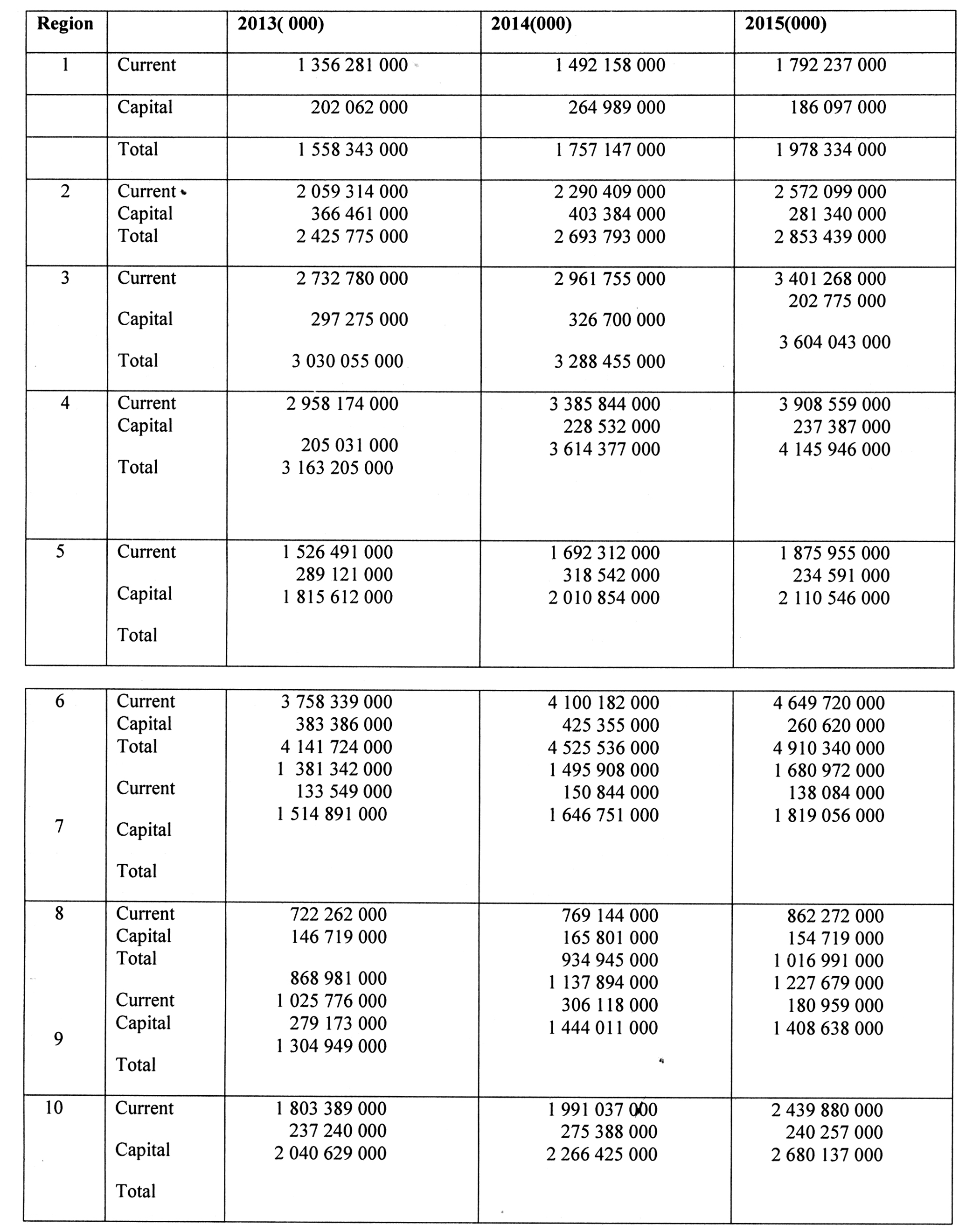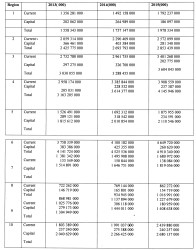Dear Editor,
1) The PPP/C has always viewed and used the budget as an economic tool for managing available resources to meet the needs of our people in communities across our country. In this regard, the PPP/C government continually provided opportunities for the people and their leaders including private groupings to express their views individually, collectively and through their leaders as we worked with the parties to identify and prioritize the needs of our people in pursuit of their livelihood goals. Thus, resource allocation through the instrument of the budget had always been for the PPP/C government primarily a function of expressed needs, the estimated cost of satisfying those needs, available resources, the opportunity costs and the ability of those who manage these resources to effectively and efficiently utilize the resources.
2) A check of our annual national and regional budgetary allocations from 1993 to 2015 provides no empirical evidence of discrimination by the PPP/C in the allocation of resources on the basis of political affiliation or ethnicity to the ten administrative regions of Guyana. Indeed, I wish to assert that a check of these budgetary allocations during our period of governance would show that opposition controlled local government bodies from which the opposition derived its main support, did receive an equal share of the resources. Furthermore, opportunities to access and to share resources were always available to all.
3) I invite our readers to check and analyse the available data with respect to the beneficiaries of the improvements in terms of infrastructure, social services, the economy ‒ the quality of livelihood in our country over the past two decades ‒ and to examine how the improvements were shared.
Who benefited from improvements in education delivery and health care? Were the benefits confined to a particular ethnic group or supporters of a particular political party? Were the beneficiaries not residents across the ten administrative regions? Would it not be a fair comment if I said that each community, over the period of governance of the PPP/C received a significant level of social development, viz, schools, trained teachers, health centres, doctors, nurses, medexes, health workers, beneficiaries of government funded scholarships, etc?
The PPP and the PPP/C has always sought to enhance the well-being of the Guyanese people; not a few or a particular group.
Who has benefited from the increased allocation of resources to expand and transform infrastructure? Check the occupancy of our housing schemes; the communities that have benefited from extended and improved water supplies, roads, electricity, bridges. Not only have those who reside in the various loci benefited, but also those who must traverse the areas and those who were involved in their actual construction. Who has benefited in some measure from the subvention grants made available annually by the PPP/C government to the 65 NDCs and the 6 municipalities through the instrument of the annual budget?
It is apparent that the significant improvements which the PPP/C’s policies/programmes/plans/projects brought to the economy of Guyana as a result of restored confidence in our economy allowed also for restored confidence in the banking system with a concomitant reduced interest rate on loans including mortgage loans and hire purchase, and made it possible for many to access loans which they used to acquire their own cars, house lots, houses, etc. Ask yourself the question: Is my life better or worse than it was one or two decades ago? You would be surprised how many of you from each of the ten administrative regions would answer this question in the positive; that is, if you are honest and a friend of Mr Truth.
3) I invite you to check the cumulative annual increases in budgetary allocations as per administrative region under their capital and current estimates during the calendar years 1993 to 2015. Note the annual increase allocation of resources and the administrative regions that benefited. Then compare that with what has happened thus far under the APNU+AFC. Is there any justification for the decline in allocations which is very much evident in administrative regions which the PPP/C won at the recent general and regional elections? A fresh approach? Perhaps. To the good life? Certainly not.
4) Why would a government remove from its National Budget a programme that creates employment and provides income for almost 2 000 of our Indigenous people (young people aged 18 to 40); a programme that provides skills training for these youths and would benefit them, their families and their village economies? Is that how the APNU+AFC plan to share the wealth of our country so that all can enjoy the good life? How does a budget that is obviously poor on job creation qualify as the ‘Good Life Budget’? What provision is there to create employment for the hundreds (most highly qualified/trained) whose services were terminated at the Ministry of the Presidency and the One Laptop per Family; or the permanent secretaries and regional executive officers whose only ‘offence’ is perhaps their failure to overtly support the APNU+AFC? How does one talk of a green economy and seek to significantly reduce budgetary support for our Indigenous people who are better positioned to support a green economy than many other groups?
5) When one examines the budget as an instrument for fighting poverty and improving the quality of life of the Guyanese people, we cannot but honestly agree that the 23 years of PPP/C rule provides an example of how this can be achieved. The key achievements of the PPP/C government include not only improvements in terms of the nature, extent and quality of the social services, infrastructure expansion and economic advances, but also the geographic spread and distribution of these improvements across our ten administrative regions. In the process, we moved Guyana from the bankrupted country it was in 1992 to one where its people were enjoying a better standard of living in May 2015. We managed our resources made available through the budget fairly, wisely and efficiently.
Yours faithfully,
Norman Whittaker






